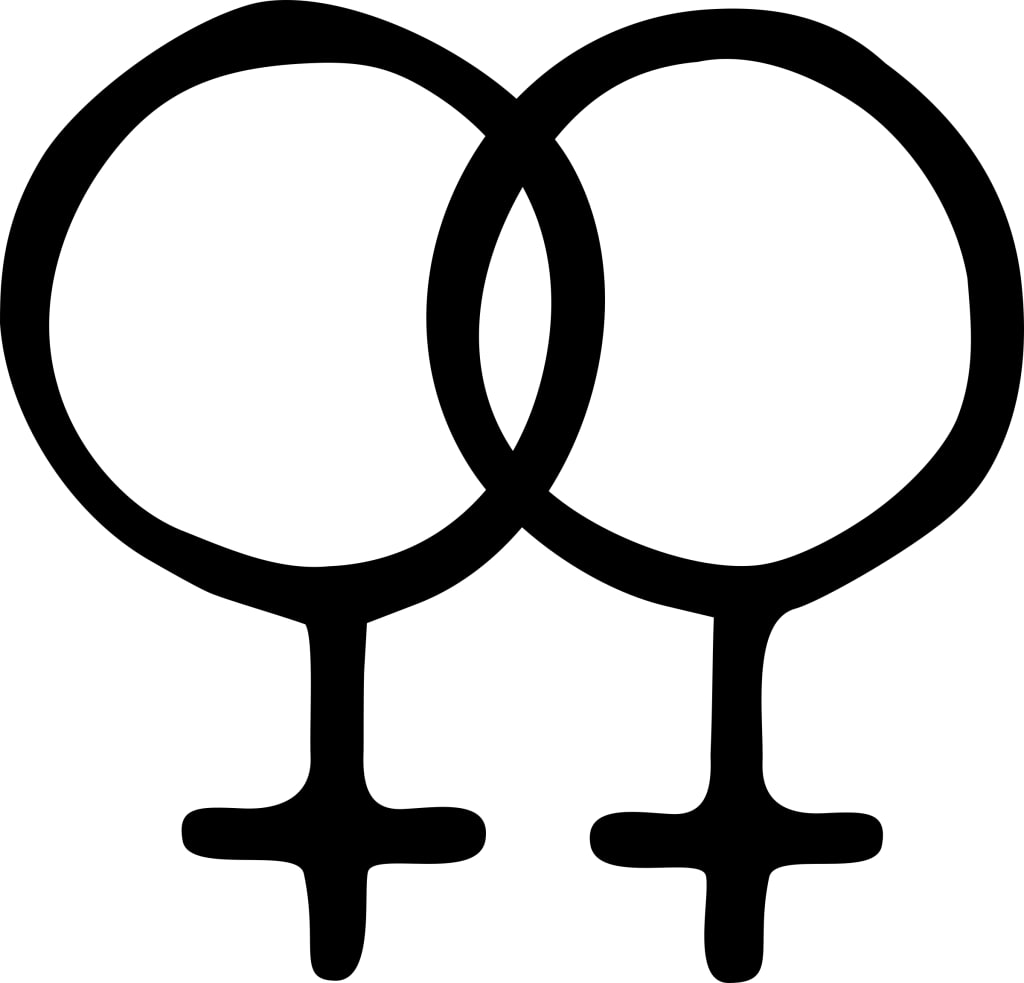Please Don't Call Me "Queer"
I'm a lesbian.

As most people know, "queer" is a term in the ever-expanding world of LGBT+ language. It is often used to describe the LGBT+ community in an umbrella sort of way, as it can encompass all not-straight and not-cisgender identities into one, simple word. But it can also be a term that individuals choose when it comes to how they label and identify themselves. The reasons for this vary. A definition that I have found and appreciate comes from a HuffPost article written by Nadia Cho; "Being queer means challenging everything that’s considered normal. [It] means ceasing to think in binaries[.]" (From "Being Queer Means...")
In an article from Everyday Feminism titled "3 Differences Between the Terms 'Gay' and 'Queer' -- and Why It Matters," author Hari Ziyad discusses their journey to choose to identify as queer; "I know for certain I’m not heterosexual—without a stable gender, I’m not even sure I could be. And when I first began to have these self-revelations, I also knew that I needed space to explore all of these complications. As I spent time figuring out what they meant, I discovered that if I must have an identification that makes sense to others who need to see me with some sort of stability, it would be 'queer.'"
Ziyad also discusses some of the many facets of "queer"—using it to encompass all "non-heterosexual, non-cisgendered identities," and also not being limited to the spectrum. ("I am not gay nor lesbian nor bisexual nor transgender. I am not anything other than just queer.") They also mention that "queer" provides a space detached from sex in a way that "gay" spaces can't offer; gayness is only a question of sexuality, but queerness is a space to explore things outside of sex, like gender, gender expression, intimacy, and relationships that are not inherently sexual.
As Ziyad points out, not all gay, lesbian, and transgender individuals identify as queer. In my case, I don't have a problem with the term as an umbrella to reference the community; as we've mentioned, it includes all sorts of not-straight and not-cis identities into a word that I believe is more accessible to those outside of the community, and I am proud to be a part of that community of people. But I would absolutely never, ever, tell you that I identify as a "queer woman." Because I'm not. I am a cis-gender woman. I dress and act and speak in a way that suggests to anyone I meet that I am a woman. I am attracted—physically and emotionally—to cis-gendered women. I am in a monogamous relationship, and I prefer it that way. How I feel about myself and my sexuality and my identity does not fluctuate. And while I understand that binaries are all social constructs and everything exists on a spectrum, I feel most comfortable identifying on an extreme end of those spectrums, almost as if they were binaries. So it would be very uncomfortable for me to take on "queer" as an identity. It does not feel to me as a stable identity that accurately reflects my experience. I don't feel that the way I express myself is at all limited by the term "lesbian." And maybe someday it will, though I do highly doubt that possibility.
So how does this come into play in my day-to-day life? Let me tell you. I am very fortunate to live in a fairly progressive/liberal area, and there are so many people that I have run into who are very conscious about their language use (think "politically correct"), which is fantastic, BUT both my wife and I have run into this issue of people using this term that drives me absolutely crazy: partner. Don't get me wrong, there certainly great linguistic value in that word. It can be used when you don't want to assume the gender of someone's significant other, or if they happen to be genderqueer/non-binary. But when I say "my wife," I mean "wife." I don't mean "partner," I don't mean "spouse." I am choosing to identify her as, well, her. As a community, we have gotten so much better at using gender-neutral language, not assuming identity, using chosen pronouns/names, etc., but in the spirit of trying to be inclusive of all identities, we seem to have forgotten that *most* people do still identify in the traditional, more-binary manners, and those identities are just as important as any others. We all have valid experiences, and your unique experience should definitely be recognized, and there absolutely should be language that helps you describe your experience, but this effort to be more inclusive shouldn't come at the expense of those who have historically been more visible/recognized. (Just like feminism should be about equality for all people, not the superiority of women. See what I did there? It's aaaaall related, welcome to the social sciences!)
So moral of the story, respect the language that people use when they talk about themselves, regardless of how they use it. Don't just put people into categories, because they might feel they don't belong there. The truth is, even if your intentions are good, you may leave someone feeling unseen or invalidated. We should be open to new ideas, and have conversations about identities, and talk about the language we use and what it means, but when it comes to identifying language, we ultimately do have to leave that up to every individual.
So thank you, but I'm not queer, I'm a lesbian.






Comments
There are no comments for this story
Be the first to respond and start the conversation.